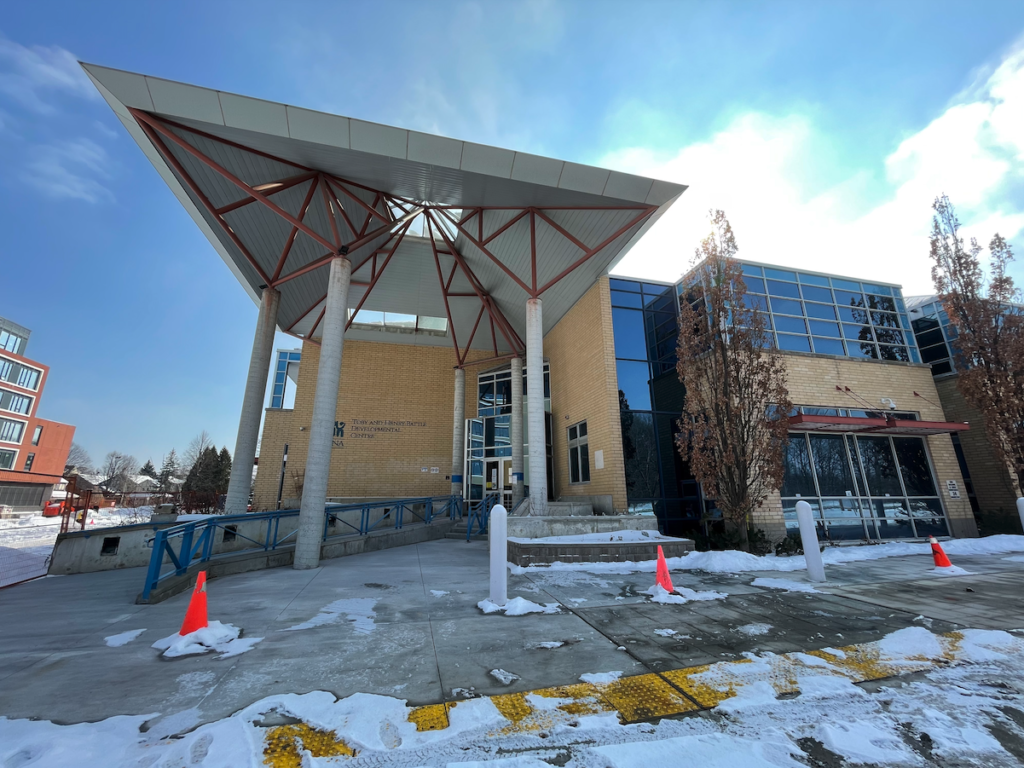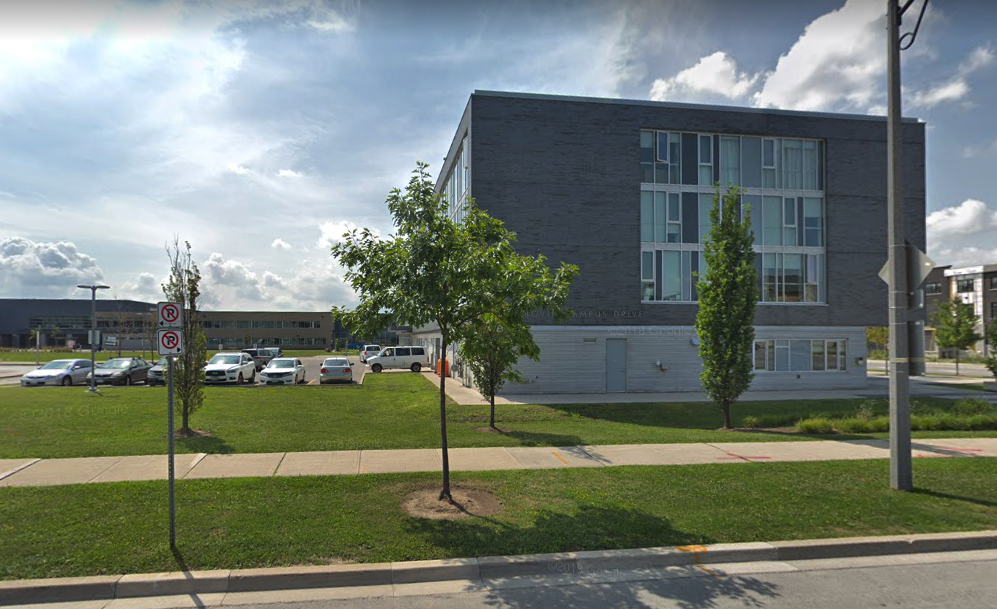By Thea Gribilas
The blood from Sonya Thompson*’s broken nose splattered onto the floor as she and her husband, Kevin*, walked out of the door of her house and got into the car to go to the hospital.
After a trip to the emergency roomwhere she was also diagnosed with broken ribs, she returned home to see her daughter, Sydney, waiting for her.“Will it be three funerals before we finally realize we can’t do this any more?” Sydney* asked her parents.
Sonya’s injuries were sustained during one of her 17-year-old son, Michael*’s, violent episodes.
Eventually, Michael ended up living at Reena, a place that provides support and housing for people with developmental disabilities and their families. But before the move Michael lived at home with his parents and sister.
Michael had been diagnosed with atypical autism — he was affectionate and communicative, uncommon for a child with autism — at three years old.
By age 10, Michael began experiencing violent episodes. By the time he was 14 he was already six-foot-five and 195 pounds, making those violent episodes more difficult to handle.
During these episodes, Sonya and Sydney would isolate themselves — often locking themselves in Sonya’s room or going out to the quiet of the car so Sydney could focus on her homework — while Kevin was taking care of Michael.
But during this specific episode Sonya had accidentally unlocked the door.
“It wasn’t anything we hadn’t seen before, when he acted out,” said Sonya. “It’s just normally I was smart enough to lock the door, but that day I thought I had locked it but really I had unlocked it.”
It was at this point that Sonya and Kevin reluctantly took Michael to Thistletown – a residential mental health centre for children – only expecting a one-night stay. However, while at Thistletown, Michael had an incident and was subsequently taken to a local hospital where he spent 31 days in a psychiatric unit, heavily medicated and in four-point restraints unless either Sonya or Kevin was present.
At this time, Kevin and Sonya began to look for support for Michael outside of their house, which Sonya says wasn’t an easy decision.
“You’re talking to a mom, and my husband would say the same thing, we never thought that he would leave our home, we always thought that we would look after Michael.”
“[He] was the most lovable, likeable, personable person, but he would get stubborn sometimes,” said Ander, who at the time worked in the day program as a senior support worker at Reena.
She remembers people watching her in public settings like the subway, as being the hardest part of being out in the community with them.
As she negotiated with Henry, she recalls her face getting red as she felt the eyes of a subway car full of people watching her, curious to see what would come next.
Reena is a non-profit organization established in 1973 by a group of parents of children with developmental disabilities. It provides support for individuals with developmental disabilities and for their families while incorporating traditional Jewish culture into their programming.

The Toby and Henry Battle Development Centre, taken on Feb. 29, 2021. (Thea Gribilas/T•) 
The Reena Community Residence located in Vaughan, Ont.. (Google/Google Maps)
With 30 homes and 60 supported independent living apartments throughout the Greater Toronto Area (GTA), Reena supports nearly 1,000 people with developmental disabilities and offers services including residential support, respite programs, counselling, advocacy and therapy at its numerous facilities throughout the GTA.
Ander now works as a manager at Reena overlooking 14 locations, many of which support people with “challenging behaviours.”
At Reena they prioritize “the connection between the individuals we support and their families,” said Anders.
This includes anything from weekly visits with family members and residents at Reena homes, to supporting residents returning home to their families for the weekend, to resident participation in community involvement activities.
But during the COVID-19 pandemic those kinds of interactions have changed substantially.
“COVID happened without planning,” said Ander. “It wasn’t like we sat down and said ‘okay, next week COVID is going to be impacting us, here’s how we’re going to have to change how we do things’, so it’s been a real learning process.”
One of the biggest challenges for staff was ensuring continued communication with families in the framework of COVID-19 restrictions.
“We were lucky to be able to access grants to get iPads and devices for our homes and the people we support so they could continue to communicate and stay in touch with families and that’s been very successful,” she said.
Ander recalls how over Christmas a parent of one of the residents wanted to have Christmas dinner with her daughter. Despite the Jewish framework that Reena operates in, the staff happily prepared a meal for the resident so that the pair could enjoy a Christmas meal over Zoom together.
These kinds of above-and-beyond stories are entirely typical of the support workers at Reena.
“We have a lot of families coming to us and saying, ‘we miss our children’,” said Ander. “So we’ve tried to come up with creative ways to maintain relationships with families.”
But Ander says she’s been impressed with how residents have reacted to the change, noting that they’ve observed, “a decrease in challenging behaviours versus an increase in incidents of challenging behaviours.”
Simon Sodhi, a supervisor at one of Reena’s locations, attributes this to a decline in stimuli that would typically heighten residents’ anxiety.
Noises that are typically overlooked, things like cars and people talking heighten the anxiety of people with autism, so as restrictions have been imposed, the anxiety they experience has lessened.Eventually, however, the goal is to reintegrate them back into the situations and experiences that residents formerly had, because, according to Sodhi, maintaining the current course would lead to a very lonely life for residents.
But reintegration won’t necessarily be easy.
“For individuals with autism, they get used to routine, they get used to structure, and that’s what provides them with safety,” Sodhi says.
Once restrictions are lifted and they begin the process of reintegrating the residents back into everyday life, Sodhi says, it will be a process to help them readjust and understand the shift and then to feel safe in that shift.
Ultimately, Sonya and Kevin decided that Reena was a safe place for Michael, and 20 years later, she has no regrets.
“We’ve been totally embraced, not just Michael, all of us,” said Sonya.
She remembers the week of March 6, 2020 with a nostalgic smile.
They had taken Michael home because of a dentist appointment. Michael returned to Reena the Sunday of that week and the following Tuesday, Ontario Premier Doug Ford announced the lockdown.
After that, they didn’t see their son for 179 days.
In September 2020 the family began backyard visits, but his behaviour often made those visits challenging. They also tried phone calls and Zoom calls but found meaningful conversations hard to come by, often faced with one-word answers.
“We really didn’t know how Michael was going to be able to adjust to not coming home on weekends and him not being with us,” she said.
But the staff kept Sonya and Kevin apprised of what was going on with Michael at Reena on a daily basis.
“It gave us the greatest gift; we were able to sleep at night knowing Michael had a good day and that the staff were taking good care of him.”
Now, Sonya and Kevin Zoom call Michael on Monday and Thursday nights. Sometimes it’s a three-minute call, sometimes it’s a 10-minute call. But for them it’s enough to keep their family ties strong.
Sonya recalls the way people would look at Michael when he was younger and the family was out in public, the way parents would pull their child closer to them just at the sight of Michael.
“That kind of thing wounds a mother and a father to the heart. But it doesn’t for someone like the [Reena] workers,” said Sonya.
Reena has been the gift Sonya and Kevin never knew they and Michael needed. The support workers truly care about their charges and Michael is offered the structure and programming he needs and which he could never have received if he stayed at home.
Thanks to Reena, Michael has the life he truly deserves which is all a parent can ask.
“We’ve been totally embraced, not just Michael, all of us… They’re amazing” said Sonya.
